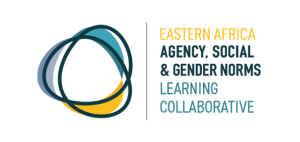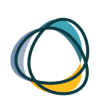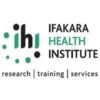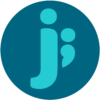EALC Job Vacancies – Research Consultants
Job Overview

EALC Job Vacancies – Research Consultants
Job Title: Research Consultants [Uganda, Kenya, Tanzania]
Reports to: Executive Director, Impact and Innovations Development Center [IIDC] Technical working relations: University of California San Diego GEH technical team, IIDC Head of Programs and IIDC Technical Advisor Social Norms.
Application Deadline: April 30th 2025
Type of Consult: Individual research expert for each country of Uganda, Kenya and Tanzania Work Location: No Fixed Duty Station [remote]
Language Required: English
Expected Duration: The total engagement will be up to 50 working days, spread over 13 months, from May 2025
BACKGROUND
About Eastern Africa Agency, Social and Gender Norms (EALC)
The Eastern Africa Agency, Social and Gender Norms (EALC) is a network of practitioners, researchers, advocates, and evaluators that supports social and gender norms programming, informs policy, and influences development outcomes. The EALC mission is to strengthen the capacity of researchers and practitioners in Eastern Africa region and disciplines by building knowledge, generating evidence, and developing tools to apply effective, ethics-informed social norm theory, measurement, and practice at scale. In implementing its mission, the EALC envisions collaborative learning, partnership, and thought leadership on social norms to promote equity, social justice, health and well-being for communities around the world. EALC is a network of members comprising individuals and organizations with interest and work in areas of Agency, social and gender norms from the Eastern Africa countries.
EALC is ran by a secretariat of 3 organizations comprising of CARE international in Uganda, Makerere School of Women and Gender Studies and coordinated by Impact and Innovations Development Centre (IIDC). The three distinct organizations together implement all EALC project activities, bringing with them a myriad of experiences and audiences who collectively form the collaborative. The EALC projects focus on bridging the gap between research and practice by building a learning community on social norms and gender and recently the EALC also shifted to include a specific focus on the concept of agency and its intersections with social and gender norms.
About the Project
East Africa Social Norms and Agency Learning Collaborative (EALC) in collaboration with University of California San Diego (UCSD) has received funding from Wellspring Philanthropic Fund to conduct systematic evidence reviews to advance work related to children and girls, with a specific focus on
identifying locally vetted evidence gaps and priority investment areas related to social norms, violence prevention, and education in Eastern Africa.
The key activities under this project are:
Activity 1: Evidence review of social norms-shifting policy and program initiatives focused on violence prevention and girls education in Eastern Africa, specifically Kenya, Uganda, Tanzania Activity 2: Engaging local stakeholders to interpret and synthesize the evidence review results Activity 3: Create audience-tailored resources and disseminate
Against this backdrop, Impact and Innovations Development Centre (IIDC) on behalf of the Eastern Africa Agency, Social and Gender Norms Learning Collaborative (EALC) Secretariat seeks to recruit 3 locally based competent research consultants in Uganda, Kenya and Tanzania to conduct the systematic evidence reviews in each of the countries.
Three research consultants, will carry out the process of identifying, appraise, and synthesise all the evidences that meet pre-specified criteria to answer specific research questions. The sources of evidences shall be identified from peer-reviewed and grey literatures on social norm-shifting policies and program initiatives in respective countries. They will conduct a rigorous and participatory assessment of the identified studies to evaluate program effectiveness, research quality, and priority gaps in both programming and research. The insights gained will inform strategic investments in violence prevention and girls’ education across East Africa.
SCOPE AND OBJECTIVES
The primary role of the research consultant will be systematic execution of an evidence review processes and production of evidence review findings, present and facilitate the validation of the evidence during sense making with relevant stakeholders, and production of audience tailored resources for dissemination- (in particular, policy brief and publication manuscript) The Consultants will be working closely under the technical support/guidance of researchers at UCSD. A research protocol and research questions shall be approved by the Advisory Board that shall be appointed by EALC.
The key role of research consultant shall include:
- Activity 1: Conducting an evidence review of norm-shifting policies and programs focused on violence prevention and girls’ education in Eastern Africa, with a particular focus on Kenya, Uganda, and Tanzania. This includes reviewing selected data for title and abstract screening, full text screening and then extraction.
- Activity 2: Alongside UCSD research team, summarize, analyse and translate results into thematic insights to inform programmatic, research, and policy decisions, and present the findings in a write up and presentation.
- Activity 3: Technically identify and engage relevant local stakeholders to interpret and synthesize evidence, ensuring contextual relevance and applicability, via an in-person one day sensemaking workshop, and refine results based on stakeholder input.
- Activity 4: Conribute to the development of audience-tailored resources (optional) for dissemination through relevant platform.
Specific tasks:
Setting Priorities and Developing the Protocol
- Contribute to refining the scope of the review and prioritizing research questions. • Review and provide feedback on the draft protocol.
- Support the finalization of the protocol, including possible use of AI to assist in portions of conducting the literature review (e.g., screening, selection, extraction).
Literature Review
- Conduct a systematic search of peer-reviewed publications and grey literature based on search terms and protocol,
- Using relevant evidence review tools, screen and select relevant peer-reviewed and grey literature studies based on inclusion/exclusion criteria.
- Extract data from all literature sources into data extraction template.
Analysis
- Analyse and visualize results through charts, graphs, and narrative thematic summaries to inform policy, programs, funding and future research.
- Produce the write up of the evidence review results
- Present findings at a virtual analysis workshop with the research team/EALC secretariat, refine findings incorporating study team feedback.
Engaging Local Stakeholders In Interpreting And Synthesizing Evidence To Ensure Contextual Relevance And Applicability
- Support technical preparations, including developing of slides, concept, agenda and facilitation for an in-person sensemaking workshop based on evidence review findings.
- Present the findings at the in-person sensemaking workshop.
- Use the feedback/input from the sense making workshop to produce the final report
Development of Publication (optional)
Participation in manuscript development is entirely optional. If the consultant decides to proceed with this option, activities may include:
- Provide input into defining the purpose, audience, and selection of a target journal for publication.
- Contribute to developing outlines for both a policy brief and a manuscript.
- Assist in drafting the manuscript.
- Review and provide feedback on results.
Operational tasks
- Participate in bi-weekly check-in meetings for the project.
CONSULTANT PROFILE
QUALIFICATIONS
Education
- Advanced university degree (master’s or PhD) in Social Work, Social Sciences, Public Policy, International Development, Education, Gender Studies, Sociology, Anthropology, or a related field.
Language
- Excellent working oral and written English proficiency.
- Preferred qualification: Proficiency in both written and spoken Swahili is relevant for Kenya and Tanzania consultant applicants
COMPETENCIES
Functional Competencies
Job Knowledge/Technical Expertise
Essential
- Demonstrates in-depth theoretical, conceptual and practical knowledge of violence against girls, social and gender norms, and girls’ education, particularly their intersection with violence prevention and educational outcomes.
- Possesses a strong understanding of social norm-shifting interventions, evidence-based approaches, and programmatic best practices in violence prevention and education.
- Strong prior background leading, conducting, or participating in systematic reviews, scoping reviews, rapid evidence assessments, or meta-analyses i.
- Experience with quantitative and qualitative research synthesis methods, qualitative and quantitative research methodologies, and data analysis techniques.
- Demonstrated ability to identify potential weaknesses and biases within programmatic evaluation designs. Familiarity with risk of bias assessment tools (e.g., Cochrane Risk of Bias Tool, GRADE, etc.) is preferred.
- Prior experience using analytical skills to synthesize complex evidence into actionable insights to inform policy, programming, and funding decisions and insights into areas for future research.
- Demonstrated ability to create clear, informative, summative tables, charts and visualizations using tools like Excel, PowerPoint, Tableau, or statistical programs.
Preferred
- Proficiency in screening, data extraction, and evidence appraisal using tools such as Covidence, EPPI-Reviewer, or NVivo is preferred
- Prior experience conducting participatory research with diverse stakeholders.
- Applies innovative and critical thinking in education programming, with a commitment to identifying and testing new approaches for improving outcomes for girls.
- Understands policy frameworks, advocacy strategies, and investment priorities related to social and gender norms, violence prevention, and education in East Africa.
Stakeholder Engagement and Facilitation
Essential
- Engages effectively with local stakeholders to interpret and contextualize research findings, ensuring alignment with community needs.
- Facilitates sense-making workshops and/or collaborative discussions to refine understanding of research results and drive evidence-based decision-making.
- Communicates research insights in a clear and accessible manner, tailoring messages for diverse audiences, including policymakers, practitioners, and funders.
Project Management and Coordination
Essential
- Demonstrates strong organizational and time-management skills, ensuring the timely completion of research tasks, reviews, and publications.
- Ability to work outside of standard hours and on flexible timeframes to ensure work is completed in collaboration with global team.
Communication and Knowledge Dissemination
Essential
- Experience developing high-quality, tailored materials including policy briefs, manuscripts, workshop presentations, etc.
- Demonstrated experience communicating complex research findings to both technical and non technical audiences.
Preferred
- Experience working collaboratively to co-author manuscripts and publications, including working through the process of defining the purpose, target audience and selecting appropriate journals.
Corporate Competencies
Essential
- Demonstrates a strong commitment to EALC’s mission, vision, and values.
Preferred
- Adheres strictly to corporate rules, regulations, and procedures, with a thorough understanding of the internal control framework and results-based management tools.
- Builds trust and confidence by ensuring consistency, transparency, and equity in interactions, fostering a culture of integrity and reliability.
- Takes ownership of decisions, demonstrating responsibility for their quality and impact while upholding professional and ethical standards.
- Demonstrates adaptability and respect for cultural, gender, religious, racial, national, and generational diversity, fostering inclusive collaboration.
EXPECTED OUTPUTS
- Protocol for evidence review
- Completed evidence review data extraction spreadsheet
- Findings presentation and refinement
- Data analysis and visualization report
- Technical preparation package for sense-making workshop
- Final project report
- Joint product such as peer-reviewed publication or policy document.
TIMEFRAME
The consultancy is expected to take up to 50 working days distributed over 13 months, from April, 2025, to June 30, 2026. This work will be front-loaded, requiring an intensive commitment of 2–3 days per week for the first 3–4 months to establish foundational elements. Following this initial phase, the time commitment is expected to decrease to approximately 1–2 days per month for the remainder of the contract period.
PAYMENT AND WORK FACILITATION TERMS
Payments will be made based on the number of days pre-agreement and contracted for carrying out the activities and delivering the approved results/outputs. The gross daily rate shall be negotiated based on experience and expertise.
Consultants are responsible for providing their computer, workspace, communication expenses, and any other foreseeable costs, which should be accounted for within their daily rate and contractual agreement. As part of your proposal, please provide an indication of your daily rate, outlining relevant experience, expertise, and other cost considerations.
HOW TO APPLY
Application Requirements
Interested applicants should submit the following:
- Cover Letter – A statement explaining why you are the most suitable candidate for the position, along with a financial proposal outlining your consultancy fees.
- A brief proposed methodology (but more than 3 pages) of the evidence review • Availability – An indication of your availability for the assignment during the period of the project indicated.
- Updated CV – A detailed resume highlighting your qualifications, competencies, and relevant experience in similar projects. The CV should also include the names and contact details of two professional referees who can validate your expertise, professionalism, and suitability for this assignment.
- Samples of Related Work – Provide examples of previous work relevant to the consultancy (via email link or electronic copy).
How to Apply
If you meet the above requirements and are interested in this role, apply through the linked Google form
Deadline: 30th April 2025 at 5:00 PM EAT





